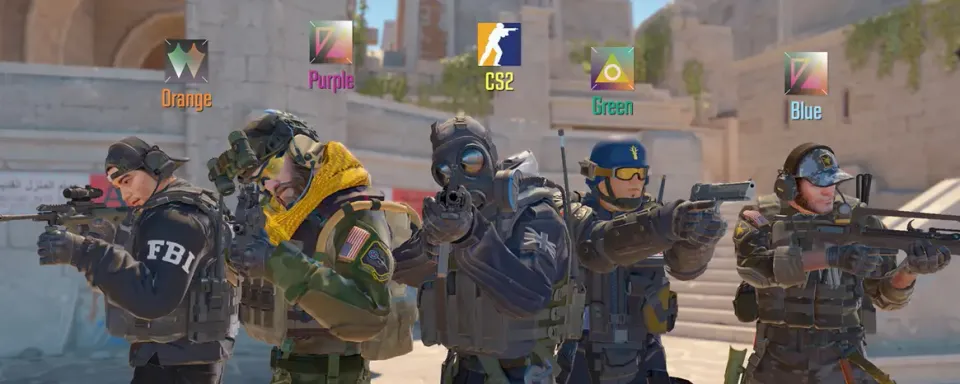Balbowa Insights
Your source for the latest news and informative articles.
Why Your CS2 Team Coordination is the Secret Sauce to Victory
Unlock your team's potential! Discover how top-notch coordination in CS2 can lead you to Victory and leave your opponents in the dust!
The Importance of Communication in CS2 Team Success
Communication plays a crucial role in the success of any team, particularly in team-based environments like CS2 (Counter-Strike 2). Effective communication ensures that team members are on the same page regarding strategies, tactics, and roles during gameplay. When players communicate well, they can quickly share information about enemy movements, coordinate attacks, and establish a unified approach to both offensive and defensive maneuvers. This not only improves the team's performance but also fosters a sense of camaraderie and trust among players, which is essential for long-term success.
Moreover, communication helps in conflict resolution and maintaining a positive team atmosphere. In high-pressure situations, misunderstandings can occur, leading to frustration and disputes. Effective communication allows team members to address issues quickly and constructively, preventing potential breakdowns in teamwork. By encouraging open dialogue, teams can cultivate a collaborative environment where all players feel valued and empowered to contribute their ideas, ultimately enhancing their overall performance in CS2.

Counter-Strike is a highly popular tactical first-person shooter game that pits teams of terrorists against counter-terrorists in various objective-based scenarios. Players must work together to complete missions while also fighting against the opposing team. One notable feature is the CS2 Challenges, which adds an exciting layer of competition and progression for players.
Top Strategies for Enhancing Coordination in CS2 Matches
In competitive CS2 matches, effective coordination among team members is vital for achieving success. One of the top strategies to enhance this coordination is establishing clear communication protocols. Ensure that everyone is familiar with callouts for specific locations on the map and adopt standardized terms for strategies, like flanking or executing bomb sites. Using voice chat effectively can significantly reduce confusion during fast-paced situations. Additionally, consider integrating tools like Discord for out-of-game strategy discussions, which can foster a strong team synergy.
Another key strategy is the practice of team drills to improve coordination. By dedicating time to practice together regularly, teams can refine their tactics and develop a deeper understanding of each other’s playstyles. Set up specific training scenarios, such as coordinated pushes or bomb site defenses, to enhance teamwork under pressure. Tracking performance through reviews of recorded gameplay can also provide valuable insights into areas for improvement and help identify strengths. Ultimately, these strategies will lead to a more cohesive team, capable of executing strategies with precision in CS2 matches.
How Effective Roles Within Your CS2 Team Lead to Victories
In any successful CS2 team, the effectiveness of individual roles significantly contributes to the overall performance and victories of the team. Each member, from strategists to players, must understand their specific contributions to the collective goal. When roles are clearly defined and aligned with the strengths of team members, the chances of executing strategies flawlessly increase. For instance, if a player excels in support, their ability to provide crucial assistance can turn the tide in critical moments, maximizing the team's potential for achieving victories.
Moreover, incorporating a systematic approach to role allocation fosters a culture of responsibility and accountability within the CS2 team. When players know what is expected of them, they can focus their efforts on mastering their skills and improving their gameplay. This synergy not only enhances performance but also builds trust among team members. Regular evaluations of team dynamics and role effectiveness ensure that adjustments can be made promptly, leading to sustained success and dominance in competitive environments.